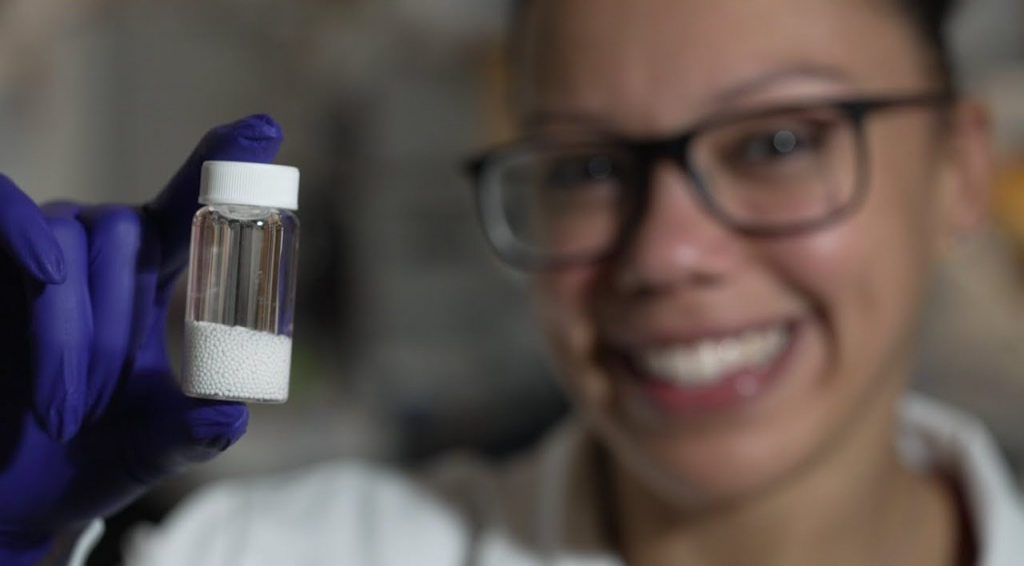
Rice University and Baylor College of Medicine researchers have achieved a groundbreaking experimental cancer treatment. Through a combination of Rice’s cytokine “drug factory” implants and a checkpoint inhibitor drug, advanced-stage mesothelioma tumors were completely eradicated in mice within a remarkably short period. This remarkable study, published in Clinical Cancer Research, showcases the immense potential of this innovative treatment. Spearheaded by Rice bioengineer Omid Veiseh, the drug-factory technology has already gained FDA approval for clinical trials in ovarian cancer patients, solidifying its promising future in combating various immune system disorders and cancers.
The Power of Drug-Producing Beads
Utilizing drug-producing beads of minuscule proportions, comparable to the size of a pinhead, the researchers administered them adjacent to the tumors. These beads served as miniature “factories,” continuously generating substantial quantities of interleukin-2 (IL-2). IL-2 is a naturally occurring compound that stimulates white blood cells, empowering them to combat cancer effectively. The targeted delivery and sustained release of IL-2 resulted in a powerful and concentrated assault on the mesothelioma tumors, leading to their complete elimination.
Advancements in Immune-Boosting Therapy
The success of this innovative approach lies in its ability to enhance the body’s immune response against cancer cells. By harnessing the potential of IL-2 and coupling it with a checkpoint inhibitor drug, the researchers achieved a synergistic effect that potentiated the immune system’s ability to recognize and destroy cancer cells. Checkpoint inhibitors function by disabling the mechanisms cancer cells employ to evade detection by the immune system. In combination with the high doses of IL-2 provided by the drug-producing beads, this treatment approach proved to be exceptionally effective in eradicating advanced-stage mesothelioma tumors.
A Promising Step Forward
The results obtained from this study are undeniably promising, providing hope for patients battling advanced-stage mesothelioma. While the research was conducted on mice, its implications for human clinical trials are profound. The ability to combat aggressive tumors within a few days offers new prospects for patients facing dire prognoses. Furthermore, the versatility of the drug-factory technology allows for potential applications in various immune system disorders and cancers, promising a more comprehensive and adaptable treatment approach.
Future Directions and Clinical Trials
The success achieved in preclinical studies has paved the way for upcoming clinical trials involving human participants. With FDA approval secured for clinical trials in ovarian cancer patients, the drug-factory technology developed by Rice University researchers is poised to undergo rigorous evaluation in a clinical setting. The trials will assess the treatment’s safety, efficacy, and potential side effects, providing invaluable insights for future therapeutic applications. The collaboration between Rice University and Baylor College of Medicine showcases the power of interdisciplinary research in developing transformative solutions for complex medical challenges.
Conclusion
The breakthrough achieved by Rice University and Baylor College of Medicine researchers in eliminating advanced-stage mesothelioma tumors in mice signifies a monumental stride in cancer treatment. The combination of Rice’s drug-factory implants and a checkpoint inhibitor drug holds immense promise for future therapeutic applications. By utilizing drug-producing beads to deliver high doses of IL-2 and coupling it with a checkpoint inhibitor, the researchers harnessed the power of the immune system to combat cancer more effectively. With clinical trials on the horizon, this revolutionary treatment offers new hope for patients battling advanced-stage mesothelioma and sets the stage for further advancements in immune-boosting therapies. The future of cancer treatment is undergoing a transformation, where innovative approaches bring us closer to defeating this formidable disease.

 Can You Sue for PTSD After an Accident?
Can You Sue for PTSD After an Accident?